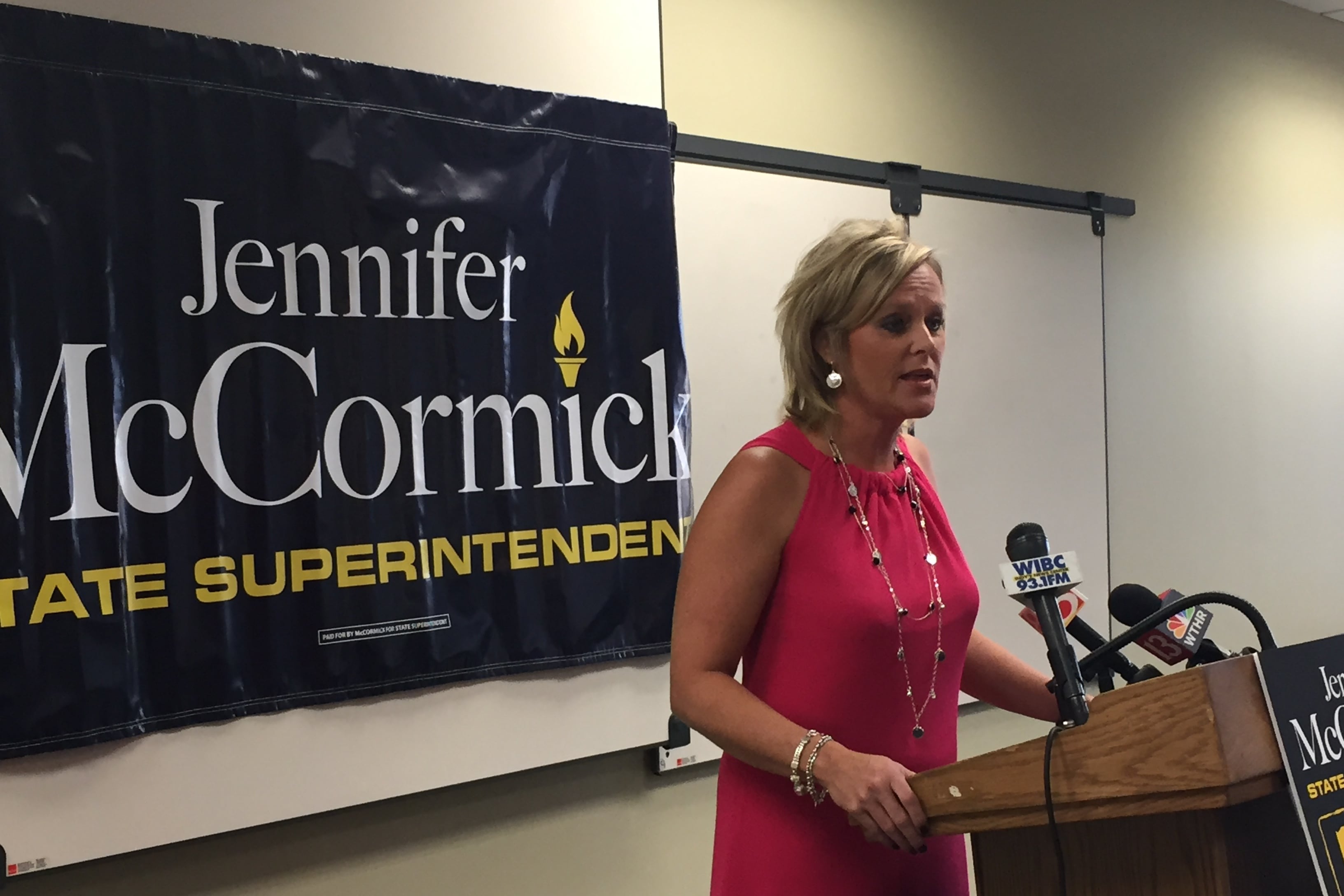In a live televised debate Tuesday night, Democratic candidate for governor Dr. Woody Myers promised to keep Republican State Superintendent Jennifer McCormick on as Indiana’s top education official if he is elected.
“She has been and will continue to be an outstanding leader for our state,” Myers said in his opening statement.
While an unusual political move, the show of bipartisanship was not wholly unexpected. McCormick crossed the aisle last month when she endorsed Myers’ campaign, after years of clashing with fellow Republicans — incumbent Gov. Eric Holcomb, his appointed education policymakers, and the GOP-dominated state legislature.
In endorsing Myers, McCormick praised his education agenda, which includes pausing the opening of new charter schools, and said he has shown he values educators’ input.
Some surmised McCormick was positioning herself for her next job after her term expires in a few months. She is the last elected state schools chief. Starting next year, the governor will select the education secretary — an increase in influence over education that raises the stakes in the gubernatorial election Nov. 3.
Holcomb has not said who he would choose to lead education in Indiana if he wins a second term, though it seemed clear McCormick would not make his short list, particularly after she endorsed his opponent. Libertarian candidate Donald Rainwater has advocated for minimizing government agencies such as the state’s department of education.
The three candidates for governor tackled education as the first topic in the debate, addressing issues such as teacher pay and school funding. Holcomb emphasized his support for charter schools, touted funding increases for schools during his four years as governor, and hinted at his plan after the election to propose strategies for increasing teacher pay “up to a competitive level — meaning up to $60,000 for the average teacher and $40,000 for the average teacher who’s just beginning,” he said.
Myers, on the other hand, said the state has “starved teachers for over 15 years,” changed the school funding system to punish urban schools, and wasted money on Indiana Virtual School and Indiana Virtual Pathways Academy, two online charter schools accused of defrauding the state of nearly $86 million.
Rainwater contended that education has been “over-politicized” and said the state should stop spending the money on bureaucracy. He essentially pitched an idea for universal school vouchers, to have state funding follow students to whatever schools their families choose.






